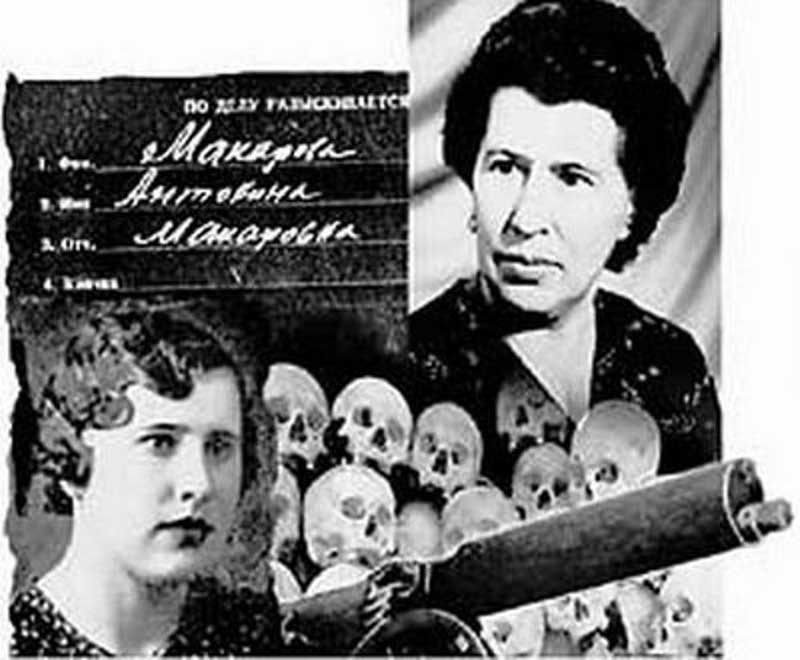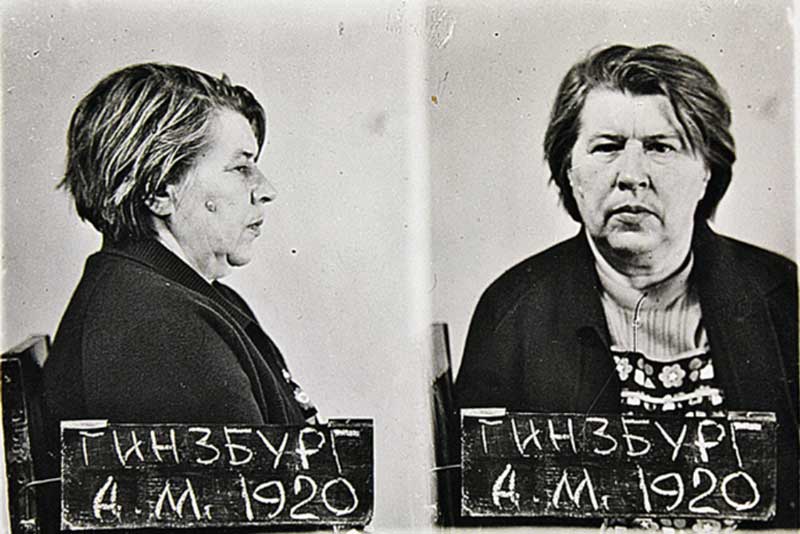
Born in 1921 in the small village of Malaya Volkovka, near Smolensk in western Russia, Antonina Parfenova, became Antonina Makarova on her first day at school, from her father's first name, as the shy girl had forgotten her last name. After completing her studies in the village, she moved with her family to Moscow, where she began studying to be a doctor. In the meantime, as the Great War broke out, she joined the Red Army at the age of nineteen and voluntarily went to the front as a nurse.
In the fall of 1941, she survived the notorious Vyazma operation, the battle of Moscow, in which the Soviet army suffered a crushing defeat. However, Antonina and a soldier named Nikolay Fedchuk managed to escape from captivity and wandered through the forests for several months, trying to get out of the German encirclement and reach the native village of Fedchuk. Antonina was under the impression that Fedchuk would like to marry her, but as they reached the house of Fedchuk, it turned out that he had a legitimate wife, who lived in his house. It broke her heart.

For a short time Antonina roamed alone, living in different villages and intended to join the ranks of the Soviet partisans. However, seeing the poor conditions of Soviet collaborators, she decided instead to go to the service of the Germans. Finally, she reached the village of Lokot, occupied by the Germans, to stay there with the invaders. Probably, by that time she became tired of wandering through the woods, as she badly needed food and sleep under a roof. During that time, she had to be a marching wife for the soldiers, as she was constantly raped, in the return of the things that she needed, food and a roof over her head.
One day they made her drunk, took her out into the courtyard, put her on a heavy machine gun and ordered to shoot at the prisoners standing before her, which consisted men, women, children and the old. The drunken Antonina did not miss and from that day on, she became a Tonka-machine gun shooter, an executioner with an official salary in 30 marks. Her job was to execute the Russian partisans, including their families, in batches of 27, the number which the local prison could hold. Later, she confessed during the interrogation that she regarded executions as an ordinary cost of wartime and committed up to three executions each day. It was estimated that, she shot about 1,500 people while working for the Germans.

In the summer of 1943, she was admitted to a German hospital for the treatment of syphilis and that saved her from being captured by the Red Army, which liberated Lokot on September 5. During her stay in the hospital, Antonina started an affair with a German corporal, who secretly took her first to Ukraine, and then to Poland. In Poland, the German corporal was killed and Antonina was sent to a concentration camp in Koenigsberg. She had to stay in the camp until 1945, when the Red Army captured the city.
To avoid detection of her real identity, Antonina claimed she was a Soviet nurse in the 422nd Sanitary Battalion from 1941 to 1944 and with the help of a military ticket that she stole from a murdered prisoner, she managed to escape punishment and got a job as a nurse in a Soviet mobile hospital. In 1945, a wounded soldier Viktor Ginsburg, who was being treated in the hospital, fell in love with her and they got married. Consequently, the Tonka machine gunner disappeared forever and in her place appeared a military nurse Antonina Ginzburg. Neither the husband, nor the familiar families, nor the neighbours had the faintest idea that Antonina Ginzburg was Antonina Makarova, the notorious Tonka machine gunner, who ruthlessly killed thousands of her innocent countrymen.

However, the KGB never gave up, as they continued searching for the war criminals. Since 1945, they were looking for Makarova, but they had no information about her, except her alias, the Tonka-machine gunner. Finally, she was discovered in 1976. In fact, she was discovered by a distant relative by the name Parfenov, which was Antonina’s birth name. As he filled out a visa application, it was noticed that, out of all his family members, Antonina was the only one not sharing the same surname. The matter was immediately reported and she was recognized by several people, who knew her from before and during the Great War. Antonina Makarova alias Antonina Ginzburg was arrested in September 1978 and taken to Bryansk, where she was placed in a pretrial detention centre.
During the interrogation, she was calm, behaved coolly and was sure that she would not receive more than three years’ imprisonment. As Viktor Ginzburg had no clue about the past of his wife, he repeatedly tried to obtain her release, threatened the investigators that he would write a complaint to the UN and to Soviet General Secretary Brezhnev. Consequently, when he was informed about the truth, he was shocked him beyond the imagination and immediately he left Lepel with his daughters. Antonina pleaded guilty to the proven murder of 168 people on 20 November 1978 and prayed for pardon several times. However, all her petitions were rejected and she was executed at 6 AM, on 11 August 1979.
